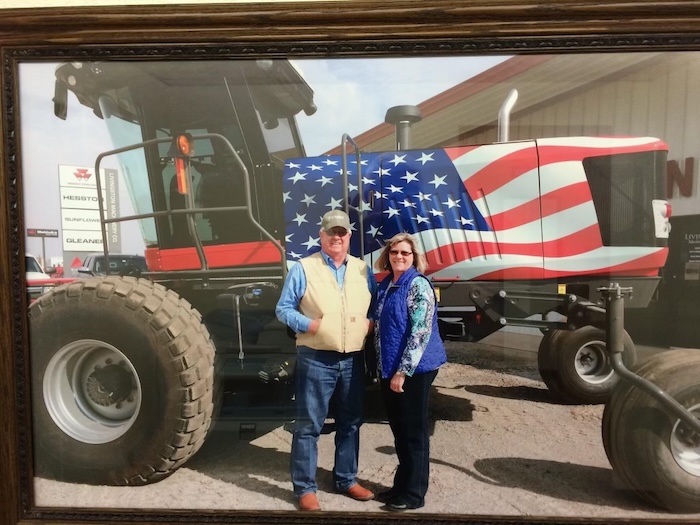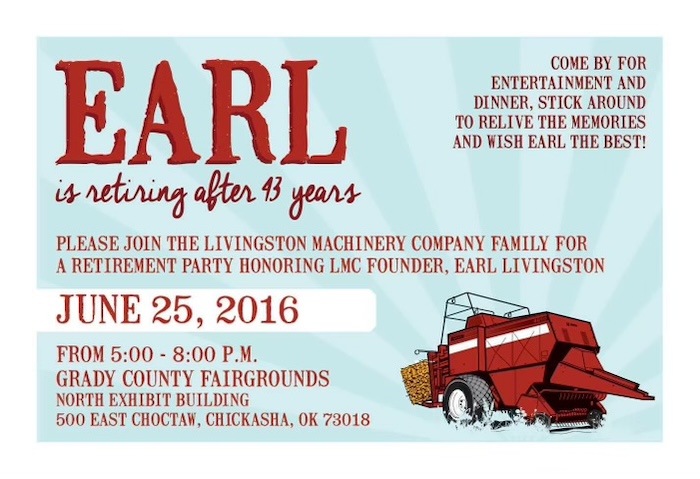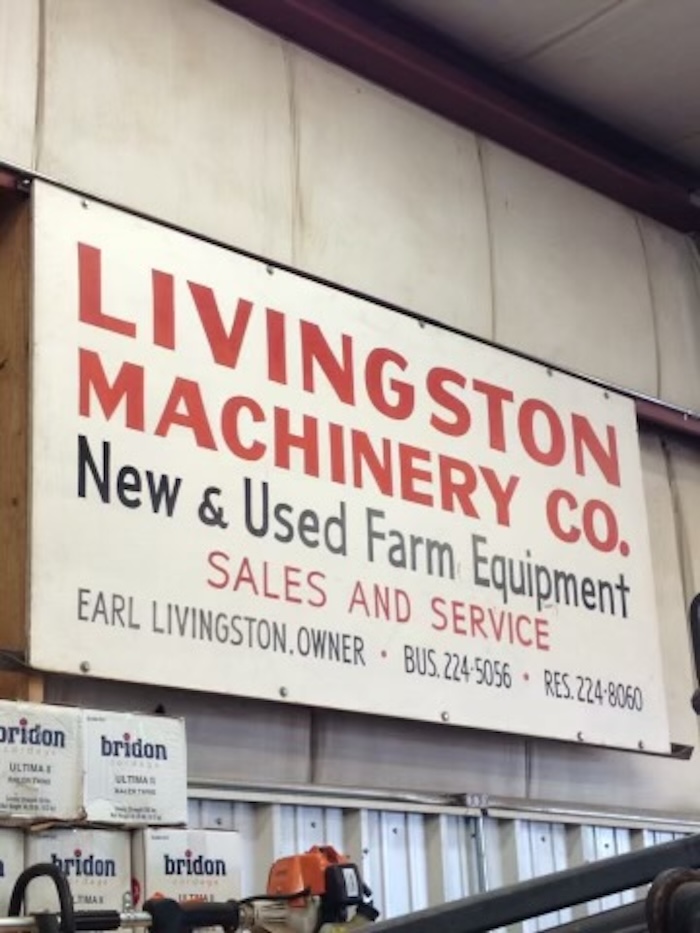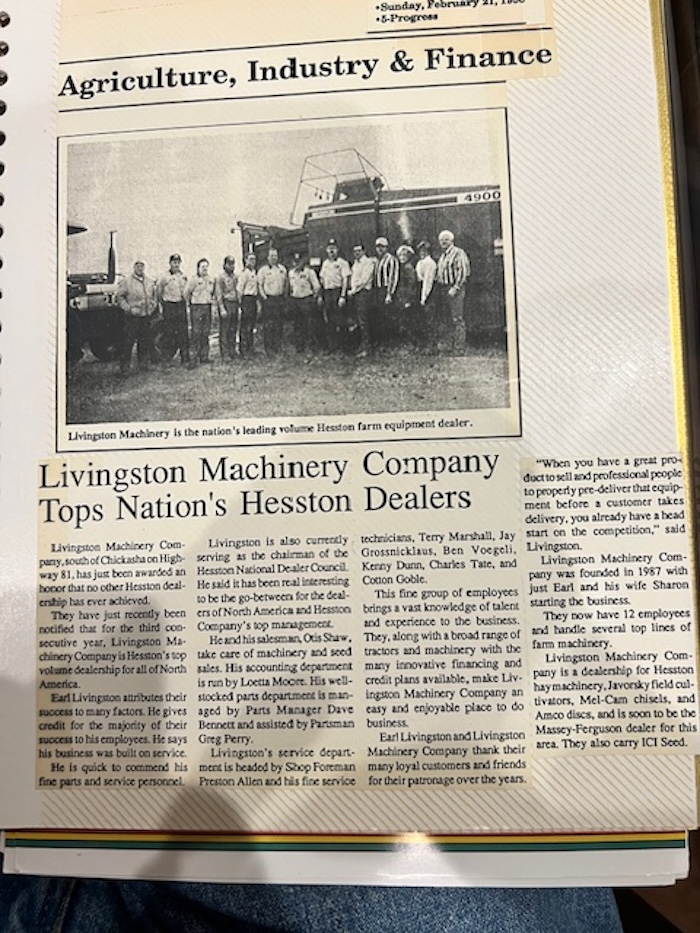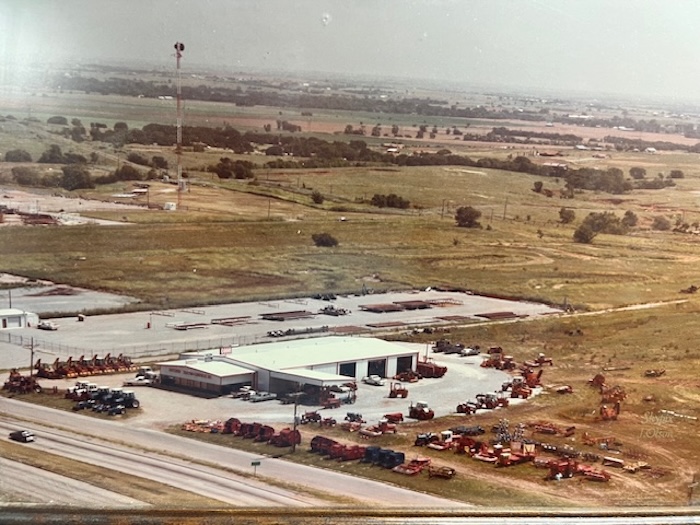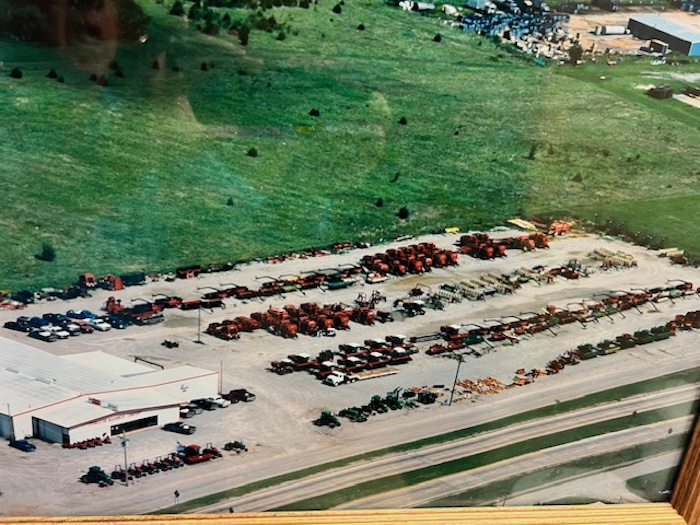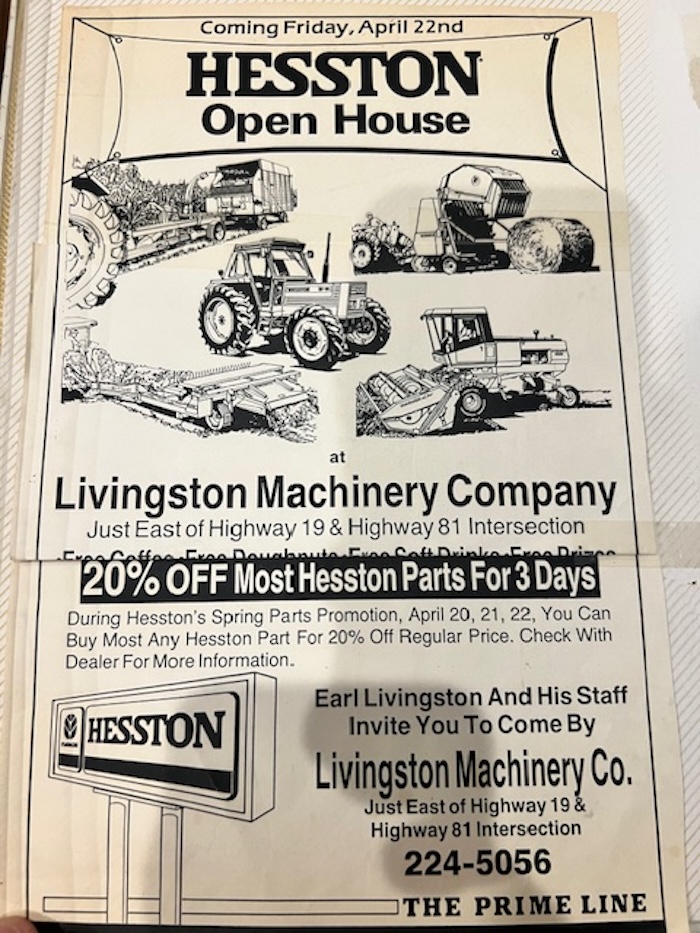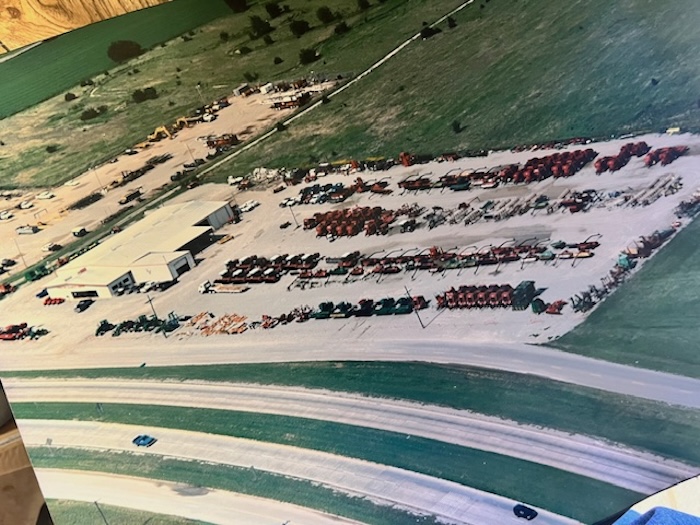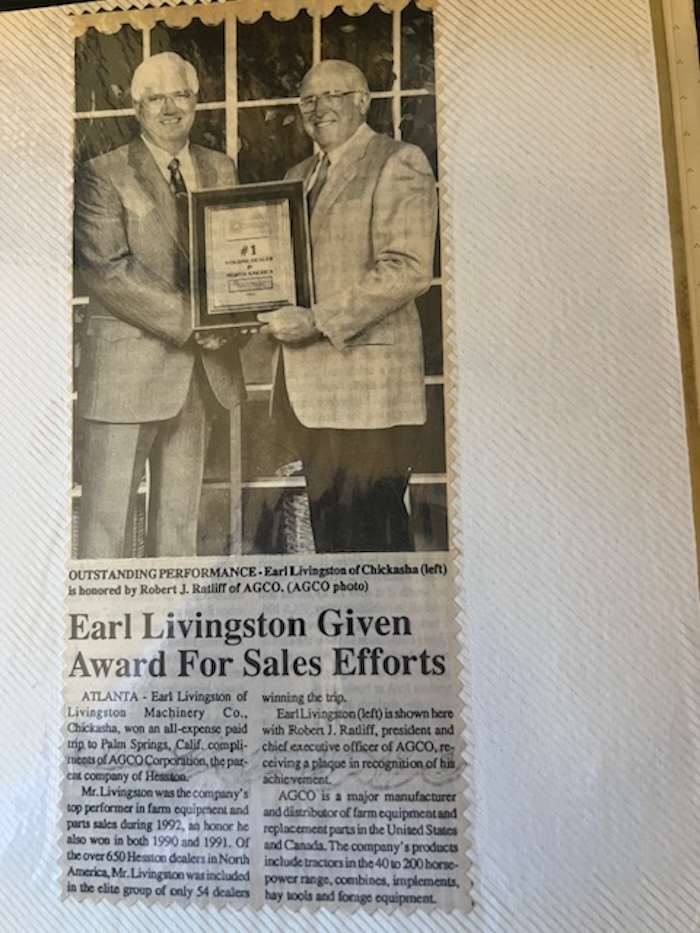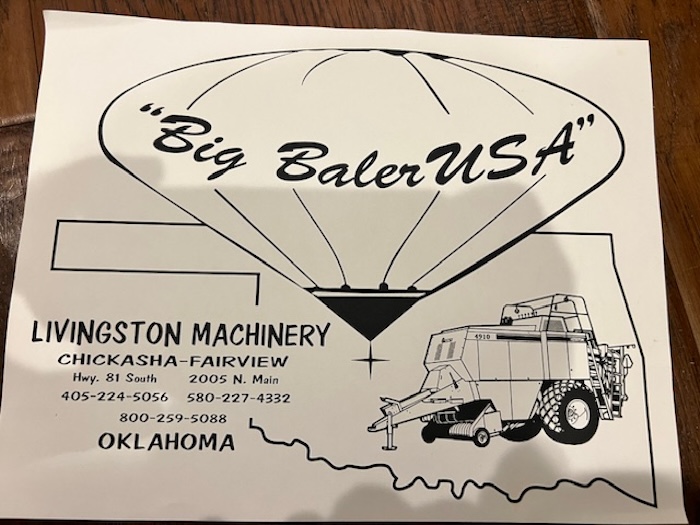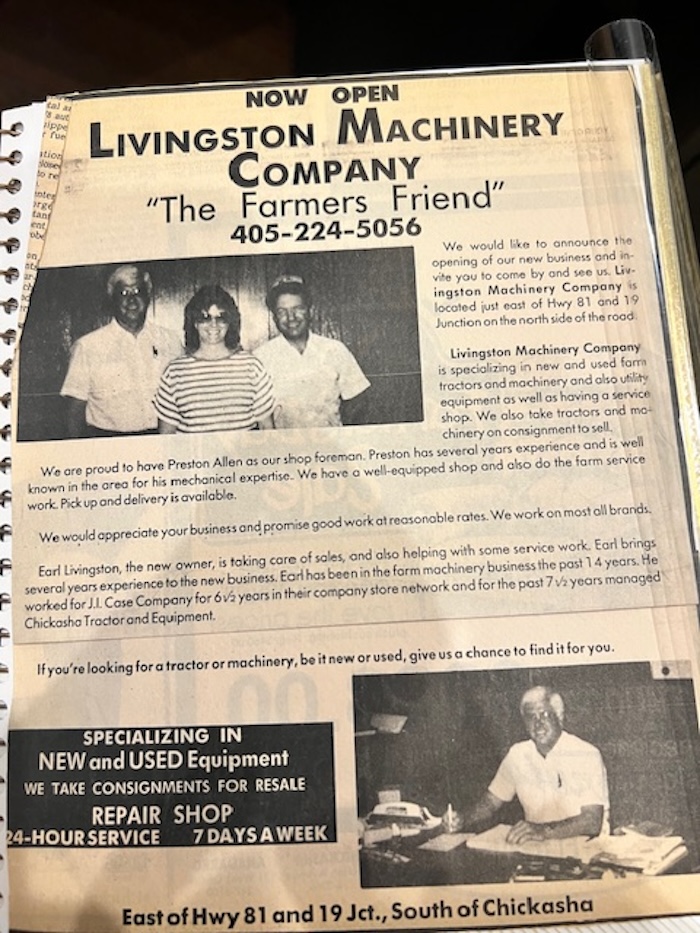Earl Livingston became known as “Big Baler Man” because of his pioneering work in introducing big hay balers to Southwestern U.S. farmers. This, along with his commitment to around-the-clock servicing of those 24 hour a day farmers, earned him that title and the loyalty of farmers across 15 states.
When he started up Livingston Machinery Co. in Chickasha, Okla., in 1987, he didn’t have a major tractor line to offer customers. He saw a market niche that most other dealers weren’t interested in. “I learned as a very young businessman that not having a major tractor to sell like John Deere or Case, I had to be better at something than anyone else. I also learned that our servicemen and parts people were the best salesmen we could have. So, I made a commitment from the day I opened my dealership that we would offer parts and service 24 hours a day and 7 days a week,” Livingston says.
Today, Livingston Machinery Co. is part of Parallel Ag, following the merger with Ag Solutions Group in 2022.
Focusing his efforts on introducing the big baler also meant teaching his equipment suppliers how servicing this market would be critical to their success. By the time AGCO acquired Hesston Corp. in 1991, Livingston Machinery was one of the 2 largest dealers of Hesston big hay balers and swathers in the U.S. Livingston recalls he didn’t make a lot of friends at AGCO in those early days. Participating in a dealer panel with 9 other Hesston dealers he remarked, “Hesston knows hay; you need to learn the way.”
He knew he had ruffled some feathers with his comment, so he asked for the opportunity to explain. He told the company execs, “Everything you’ve done since you bought the company has hurt my business. You’ve pulled my territory man out and sent in an inexperienced man. You pulled our regional manager who really knew the business. You moved our parts warehouse to Batavia, Ill. We used to be able to get parts overnight from Kansas (Hesston’s headquarters), but now regular UPS is 4 days and overnight is 2 days.”
He admits that he said some things that “maybe I shouldn’t have said, but they changed our order-writing program to match their tractor and combine business instead of the hay business,” he says. “I didn’t mean any disrespect because I personally don’t like rude people.”
He says he was trying to get them to understand that haying was entirely different than the tractor and combine business. “We needed promotions at different times of the year. We needed to be able to deliver parts immediately because a hay farmer can’t afford delays. If he can’t get the parts he needs that day or the next day, in 2 or 3 days he can lose $5,000, $10,000 or $20,000 because the hay got rained on or blew away.”
While it may not have been appreciated at the moment, Livingston’s message got through. “Over the years, 3 or 4 of the larger Hesston dealers were among AGCO’s top 10 dealers every year,” he says. During those years, Livingston found himself in the Circle of Excellence which honored AGCO’s top 10-15 dealers annually.
Didn’t Want to Be Bookkeeper
Long hours and hard work were Livingston’s hallmark throughout his career, starting as a boy. He grew up chopping cotton and pulling bolls “with my sisters and my aunt. I also started going on harvest when I was 13 years old and went every summer and every fall. Even when I went to college full-time, I worked 52 hours a week.”
By 1973, Livingston had earned degrees in accounting and business. “I was interested in something in the agriculture field where I could use my accounting background.” At the same time, he knew “I didn’t want to be a bookkeeper all my life, but my ag background opened doors for me.”
Livingston got the break he was looking for when the store manager of the Case Farm Equipment dealership in Elk City, Okla., hired him for a business manager position. “I did the accounting, took care of the machinery settlements and helped write all the retail contracts. It was a wonderful training program,” he says.
“Earl was Mr. Hay. If you wanted to know anything about hay equipment or what you needed to do to sell it, you just went to Earl. He ran a good business, and he understood the end-user and the product inside and out…” –Jim Walker, former Claas, AGCO & CNH executive
After about a year, Livingston knew what he wanted to do was sell. So, he began reading the sales manuals and learning about the value of equipment. “Any time the truck driver was gone, I would drive the truck. When they needed help in parts, I worked in parts. I was lucky to get great training in other areas of the dealership.”
Eventually he worked his way into sales and as time went on, he began winning Case sales awards. “They had a program back then called Master Salesman. I was one of the few salesmen that was fortunate enough to win the ring. But not only just win it — every year I hit or surpassed sales targets and they added another diamond to my ring until it was full.”
He was transferred by Case to another failing company store in Texas where he scored another turnaround success. This caught the attention of the owner of Chickasha Tractor and Equipment in Oklahoma who was looking for help getting his dealership back on track. The dealership was put on notice by both Case and Ford and needed help badly just to stay in business.
He worked for the dealership from 1979 until 1987, turning it into a profitable business. Then the owner decided to make changes that Livingston says he couldn’t live with. “He wanted to do things that I didn’t believe in and that I knew would not work, so I told him I would not be any part of that. I had a good reputation and I wasn’t going to do something that would hurt that reputation.
“That’s when I decided to go around the corner, rent a 50-by-100-foot building and start my own dealership.”
A Good Start
Livingston Machinery Co. was officially established in May 1987 with 3 people: Earl, his wife and a shop foreman from his previous dealership. “I made a deal with another dealer to buy about $50,000 worth of fast-moving parts at near-cost, and I split the profits on Hesston equipment I sold with him.”
The new dealership got off to a good start despite having a limited product offering. “We sold lots of Hesston big balers, swathers and used tractors those first few years, and as I could afford it, I would hire more employees. I was hoping to get the Case contract, as well, but they wouldn’t accept me in a small facility with no computer system.”
When Livingston’s previous employer failed to meet sales expectations, it lost its Case and Ford contracts, and he offered to acquire them in 1990. “I started my business with only the Hesston contract. Then I picked up some shortlines like Woods mowers and a few others. I was fortunate to get the Sunflower contract before AGCO bought Sunflower.”
After AGCO acquired Hesston and Sunflower, Livingston Machinery was able to add its Massey Ferguson tractors and all of the major equipment that AGCO offered. But it was the Hesston big baler that built Livingston’s reputation and grew his customer base.
Offering 24/7 Service
The introduction of cell phones helped kick Livingston’s 24/7 service commitment into high gear. “We made up laminated cards that had all my people’s home and cell phone numbers and mine was the top of the list,” Livingston says. “With every sale we’d give the customer one of the cards and tell them, ‘You can call Earl first. If you can’t get him, here’s the numbers of out parts people, salespeople and mechanics.’”
He says that all new hires had to agree to share their phone numbers on that card. “They needed to commit to how we needed to do business. It wasn’t quite as mean as it sounds,” Livingston explains. “As the business grew, we formed teams. So, one week we’d have 5 mechanics and a parts man on call with a couple of people to back them up. Of course, it was still with the understanding that everybody would call me first and then I would figure out who was on call and who to send where.”



